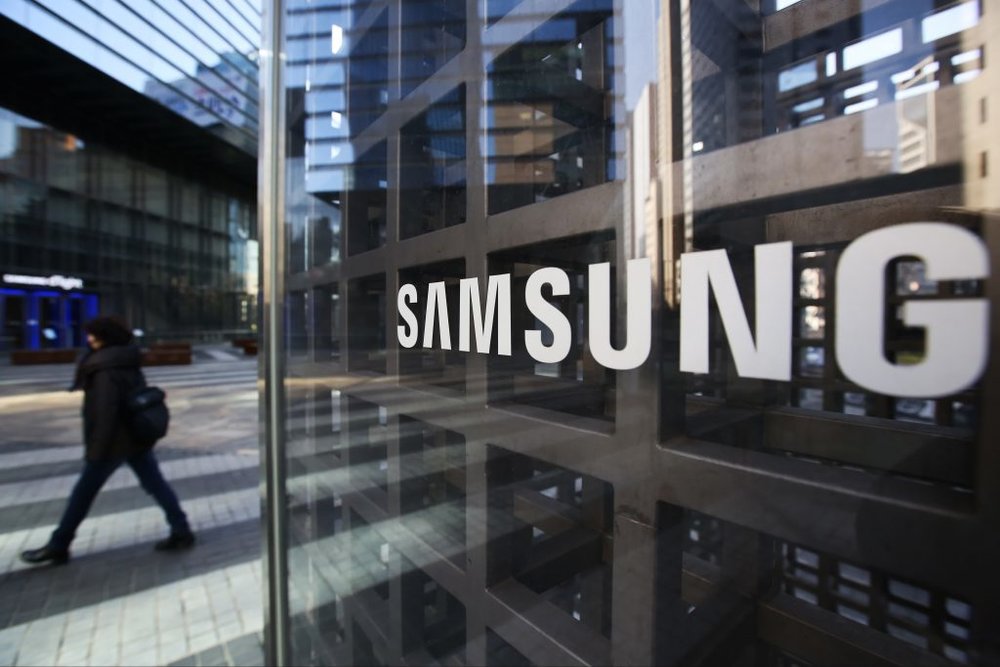Given the state of the economy, it’s little wonder that another tech giant has registered lackluster sales.
Popular South Korean smartphone manufacturer, Samsung, has come to the fore with a pronouncement about the poor state of its 4th quarter profit margins. In their address, representatives revealed that there was a considerable 30% dip between the figure today and a year ago.

Many analysts were shellshocked by the revelation since they expected the company to brave the storm.
Speaking to members of the press, Samsung confided that the key reason behind their substandard sales is the drop in demand for their memory chips in the market. They also added that the enhanced competition in the smartphone industry has greatly weakened their previous vice-like grip on the market.
Shared Fates
The Samsung news comes just a week after Apple divulged that they were expecting to sell fewer iPhones than they had projected. Apple shared that the key reason behind their decline is because of reduced demand for their products in China. Understandably, the current trade war between China and the United States has not helped their plight.
With Samsung highly regarded in the smartphone world as the largest manufacturer, they didn’t point fingers at China as the reason behind their decline. They did, however, share that the growing macroeconomic changes had greatly impacted their business.

In Seoul, Samsung shares dropped considerably by 1.7% at the close of business.
Remarkably, their stocks have depreciated by about a quarter of their initial value in the past annum. In China, there’s been a widespread economic slowdown which has greatly affected plenty of enterprises around the globe.
Given the fact that the Chinese have the world’s biggest smartphone market, it’s quite understandable how an economic crisis would change the order of business.
Diverse
To complement their business, Samsung has a wide net of operations. Other than just selling phones, they have investments in providing the supply of parts like display screens and chips to various other smartphone outlets. So impressive is their business model that Apple uses Samsung’s OLED screens on their new iPhone models.
While it’s true that Apple makes more money through the sale of its flagship iPhone devices, Samsung makes much more by selling parts like DRAM chips, semiconductors, AMOLED screens, and flash memories.
SK Kim, a top analyst at Daiwa Capital Markets, pointed out that without Samsung’s massive sale of memory chips and other devices in the consumer electronics business, they wouldn’t be as profitable as they now are. In part, their nemesis, Apple has been a key driver behind their recent success. Their latest range of iPhones were well received by the market. Given the fact that Samsung had some stake in supplying parts, they equally benefit from the bonanza.
Expanding
Because of their expansive business model, Samsung pointed out that they were looking to make some profits in the 4th quarter of 2018. More specifically, they shared that the returns would be in the amounts of 10.8 trillion won, which translates to about $9.6 billion. This number significantly pales in comparison to last year’s figure of 15.2 trillion won, which is about 13.5 billion.

Samsung has made it known that they expect the adoption of 5G technology and the rise of foldable smartphones will give their mobile business a significant bump.
Analysts at the company are predicting sales to take a hit by about 11 percent to produce numbers in the $52.5 billion range. They believe that the weak performance is a trend that’s bound to continue going forward. According to their projections, the poor sales will continue being experience in the 1st quarter of 2019. However, they believe that further onwards, sales in the memory business will pick up pace.
Little Surprise
Onlookers in the industry have not been surprised by Samsung’s pronouncement. One analyst who operates at IDC in Singapore, Kiranjeet Kaur, has shared that the competition from Chinese companies has largely inhibited the penetration of Samsung mobiles in numerous markets from South East Asia to India.
Kaur shared this despite the fact that the IDC produced a comprehensive report showing that Samsung was well and truly ahead of the pack in terms of global sales. The only affliction with the company is the incredible 13% dip in sales witnessed during the 3rd quarter of 2018.
To really get a gist of the situation, their rival company, Huawei, registered a huge 33% growth in the market. Kaur opined that the upturn in events is largely because memory chip prices are now longer selling like hotcakes as they once did. Therefore, Samsung’s dominance as a global supply force has been fading.










